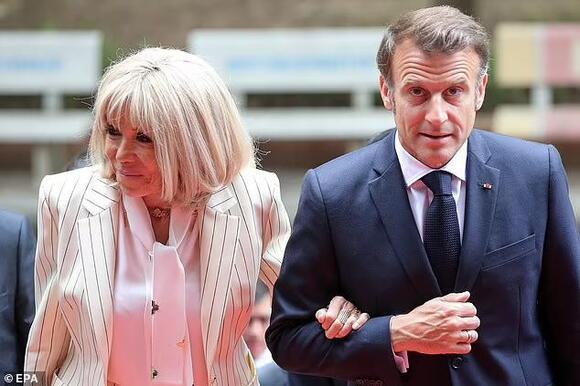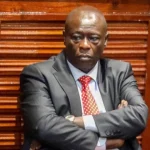Macron sought to quell the resulting media storm, describing the moment as lighthearted “playfighting” and dismissing the backlash as a product of disinformation campaigns. “My wife and I were squabbling—we were joking—and I was taken by surprise,” he told reporters. “Now it has become a planetary catastrophe, with some even spinning conspiracy theories.”


He referenced other recent false claims, including rumors of drug use with British and German leaders and an alleged altercation with Turkey’s president. “In these videos, I took a tissue, shook a hand, and joked with my wife—nothing more. None of it is true. Everyone needs to calm down.”
Macron and Brigitte were seen holding hands as they boarded their plane to leave Vietnam, smiling and waving at their hosts in a display of unity.
Aides downplayed the incident, describing it as a private moment taken out of context. “It was a moment of closeness, a shared joke before the formalities of the visit,” an Élysée official explained. Others blamed hostile online narratives, particularly from pro-Russian sources, for amplifying the controversy.
The couple’s relationship has long drawn public interest. Brigitte Macron, 72, was Emmanuel’s high school drama teacher before the two began a relationship when he was in his late teens. The couple married in 2007 and have frequently presented a united front in public life.
Their visit to Vietnam marked the first by a French president in nearly a decade and was aimed at strengthening diplomatic and economic ties. Macron signed multiple agreements, including a deal between VietJet and Airbus for 20 A330-900 aircraft.
He also addressed the importance of maintaining a rules-based global order, especially amid increasing geopolitical tensions. “At a time of imbalance and power-driven rhetoric, we must preserve a legal international order,” Macron stated during a joint appearance with his Vietnamese counterpart Luong Cuong.
The tour, which will continue in Indonesia and Singapore, includes initiatives on defence, renewable energy, nuclear power, and strategic mineral supply chains. Macron emphasised support for Vietnam’s energy transition away from coal and France’s commitment to upholding maritime law in the Indo-Pacific.
The French president’s itinerary also included cultural stops, such as a visit to the Temple of Literature in Hanoi and a ceremony at a war memorial, honouring those who resisted French colonial rule.
France and Vietnam maintain a comprehensive strategic partnership—Vietnam’s highest diplomatic ranking—shared only with Russia, China, and the United States. Macron’s visit underlines Paris’s ambition to position itself as a key player in Southeast Asia, offering an alternative to both American and Chinese influence in the region.



